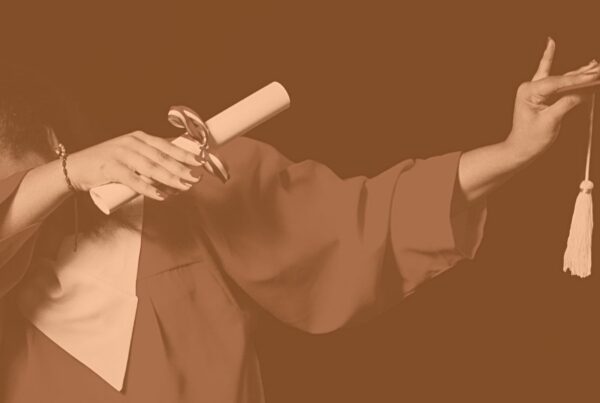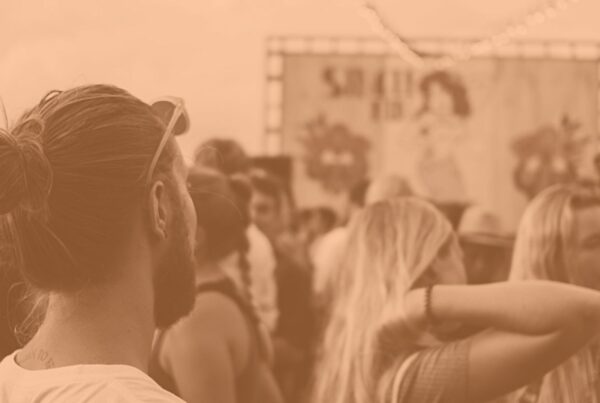As things currently stand in the events industry, we’re planning events in 2022 as if the COVID-19 pandemic never existed. The mask mandates are gone and COVID compliance talk has all but disappeared. In-person events are back in all their glory. And to the Event Brew hosts, they often look identical to 2019. But is that a good thing? According to this episode, not so much.
Dustin, Nick, and Will are joined by a very special guest that some might know from #EventIcons: Deanna Nwosu. She notes that, indeed, some events look a lot like 2019 in 2022. But why is that so? What would the Brew Crew have event planners do to plan better events?
This is a well-rounded and pragmatic episode that touches upon the reality of event planning, budgeting, event marketing, event strategy, proving event ROI, and more. Deanna’s perspective adds a breath of fresh air to the Event Brew podcast, so make sure to tune in and hear what she has to say about planning events in 2022.
The Powerful Return To 2019 Might Leave Some Behind
Will says that it seems as if event planners haven’t learned anything from the COVID-19 pandemic. In his view, events look the same as they did in 2019.
Deanna agrees but adds that many audiences are clamoring for the pre-pandemic events. After all, aren’t we supposed to give attendees what they want? “I planned a conference in 2020 that got canceled. This year, they’re using 75% of the agenda I made for that very same conference. It was very similar to the pre-COVID event, but tons of people came because that crowd simply wanted to meet in person. They typically like to get out of the office and use the conference as an excuse to have an expense-paid trip with their boss. They can enjoy their time in another city and be away from their responsibilities.”
But on the other hand, there are many events with low registration numbers. “Some people are not comfortable with the fact that the mask mandates are gone and they would rather not leave their safety bubble,” she says.
“If you’re planning on going to return to 2019, it’s limiting to go with the exact same script,” says Nick. “You can provide the 2019 people with something, but it’s still leaving those who’ve changed their mindset behind. During the pandemic, we discovered that we were underserving many people. What I’ve discovered working in the virtual space for the last year and a half is that you can get someone to admit that their event would be better with a synchronous hybrid or an asynchronous hybrid strategy. But they still won’t do it if they don’t have the means to do it.”
Planning Events In 2022: Event Planners Lack Resources
So, where is the challenge? Why won’t event planners adopt a more modern, post-pandemic, approach to events? “We learned how to do two things really well during the pandemic,” says Nick. “We can double the value of our event. It also doubles the work. And if there’s not double the resources, then it just isn’t going to happen regardless of how much better it is. If you want to have the 2019 event plus the things you’ve learned, you have to be able to determine where the resources are.”
For instance, why do marketers have resources whereas event planners don’t? “When the internet came, marketers hired social media people, graphic designers, videographers, etc. But when new data comes to the events industry or there are active shooters or viral outbreaks, they don’t hire a virologist or a wellbeing expert. Event planners just end up wearing an extra hat,” says Nick.
“Meanwhile, marketers made more money. The difference between marketers and planners is that marketers always focus on the ROI. Events people focus on the actual work and they like it because it’s people-oriented. So if you want to rise above that, you need to learn how to find empirical proof that what you’re doing pays off,” he elaborates.
Event Planners Have To Prove Event ROI
“Event marketers get much more respect and street cred than event planners,” Deanna agrees. “And 75% of their role overlaps. I was in a role where I had a planner title, but 50% of what I did was related to trade shows. That’s event marketing. As a planner, I am happy to sign all the contracts, but I need those dollars to buy all that labor. If the man upstairs doesn’t agree, it’s an uphill battle. And you might have this great vision and event strategy. It’s a classic tale of champagne taste on a beer budget.”
So, what is an event planner to do? “Frame what you do in terms of lead generation,” advises Nick. “Run a report and compare the people who have experienced your events versus those who haven’t and determine where your closing percentage is. That’s one of the most powerful things you can do. Show them that people who are touched by our experiences convert more frequently or are more profitable. When they come through me, the business is better. That kind of language cuts through all the noise. You’re not investing in chicken at events, you’re investing in lead qualification and customer lifetime value.”
“Not to throw a wrench in the whole data thing, but I was listening to Chris Walker, the founder and CEO of Refine Labs, on a webinar,” replies Deanna. “I asked about using events as lead generation and he fought back. If you think about events, they are not lead gen tools because they’re usually just one plot on the funnel. They might not be the first time your prospect has heard about you. It’s just another opportunity for brand engagement.”
 How To Move Beyond 2019 When Planning Events In 2022
How To Move Beyond 2019 When Planning Events In 2022
But what if the event planner had all the resources in the world as well as a strong team? Deanna asks the Brew Crew what could they do with those resources to move past planning events as if it was still 2019.
Dustin advises planners to invest in event strategy. “Producer planner and a strategist don’t do the same things. There needs to be a dedicated strategist who is thinking about overall strategy and is not worried about how to get things done.”
Nick says planners should turn events into community touchpoints. “Do not put all your eggs in one basket. We need to connect with our community more frequently. I would also make sure that there are more peaks along the way. That way, you can keep that loyalty and energy going within your community. It’s more disruption-proof to diversify, rather than something happens and you have to cancel your event.”
“David Adler said that the future is bringing together smaller groups and having more of an impact,” adds Dustin. “It is becoming increasingly more challenging to make an impact on a mass of people at the same time. We were talking specifically about associations. He said that we should create niche audiences, work for them, and give them incredible experiences that they can’t get anywhere else. Make that your focus.”
Planning Events In 2022 The Right Way
In conclusion, Nick emphasizes that virtual events hold immense value, even though they do not seem as exciting right now. “I want to grow and future-proof the things that I invest in. Right now, virtual events don’t feel as fun because you don’t need to plan them. And it was brought on by gunpoint, to begin with. But I still think that there are ways to add value with event platforms that would make us stronger on the whole. Frankly, there are a lot of ways to make money. Every time I see virtual, all I can think of is another opportunity to add more sponsor eyeballs and more money coming in, evergreen.”
“Leave the fear of content creation in 2020 and 2021,” says Deanna. “We can do a better job of using our events as content creation houses. It’s about distributing the content. We can make events a longer experience and not just that one moment in time.”
And Dustin’s final thoughts on planning events in 2022? “2021 was an exceptional year for us. We included more people and created a space for more people to attend events and attend them in a way that they’re comfortable with. We need to keep our eyes on that in 2022 and figure out how we can continue to do that.”








